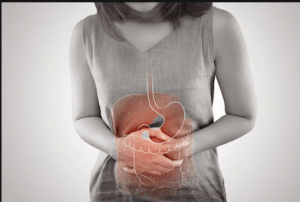The food that we chew and swallow enters your Gastrointestinal tract which starts with the oesophagus and ends with the anus. Imagine if there is a tumour in your GI tract. What happens next? Sorrow and sad face? Need not be. You can’t change the fact that you have a tumour. But it is possible to walk through it if you know how to deal with it. To accumulate all the knowledge about this disease.

What is a GIST Tumor?
Gastrointestinal Stromal Tumors are unnatural cells in the walls of the gastrointestinal tract or digestive tract. The tumours arise from specific cells called Interstitial Cells of Cajal (ICCs). This kind of tumour is comparatively rare and unique. Very small GISTs happen and they are smaller than peanuts. Gist belongs to one of a group of cancers called Sarcomas which develops in supportive tissues. Most of the GIST tumors occur in the stomach while others in the duodenum and small intestine, oesophagus, colon and rectum. GI tract cancers are different from GIST tumours. GIST can be cancerous or non-cancerous.
Symptoms:
You or your doctor may not see it in the early stage. Sometimes they are found while examining for any other problem. Check for symptoms like
- Pain or swelling in the abdomen
- Nausea
- Blood in the stool or vomit
- Loss of appetite
- Fever and sweating at night
- Weight loss
- Trouble when swallowing
- Anemia
- Weakness and tiredness
Causes
What is the specific cause of GISTs? Still unknown. No environmental or behavioural factors contribute to GIST. They happen randomly and no definite cause. However, it is regularly linked to the mutation in the KIT gene protein.
Risk Factors
Being older: People between 50 and 70 are more prone to this while less than 40 are rare. Children and adolescent people are affected rarely.
Genetic syndromes: In rare cases, genetic factors can escalate the chances of a GIST tumour.
Gender: GISTs are more common in men than in women.
Diagnostic Methods
Physical exam: This includes looking for lumps or anything abnormal in the body.
CT scan: This scan provides detailed images of the parts inside our body taken at different angles.
Endoscopic Ultrasound and Biopsy: The picture of the upper GI tract can be obtained from Endoscopy and Ultrasound. A Biopsy can be managed by picking a little portion of the tissue for analysing. If the results are positive, the following tests are conducted to study the tumour cells.
Immunohistochemistry: This helps in identifying antigens in a sample of tissue by using antibodies.
Mitotic rate: We all know cancer cells produce and invade nearby parts. How fast this happens? This can be determined with Mitotic rate by counting the number of cells dividing in a certain amount of cancer tissue.
Tumour cells spread via tissue, lymph system and blood. The following tests are performed to find out if cancer cells have spread: PET scan, CT scan, MRI, Chest X-ray, Bone scan.
Treatment
Treatment should be based on a comprehensive analysis of location, and the extent it has reached other parts of the body. GISTs can be threatening if they grew to other areas beyond their original location. The extent it has developed is called the stage of cancer which can be 1, 2, 3 or 4. The higher the number, the higher the spread. Based on which stage you are, your doctor will decide the best treatment option for you.
Surgical Treatment: If the tumour has not spread, it can be removed either through open surgery or minimally invasive surgery. Surgeons can also extract an area of normal tissue adjacent to it to decrease the risk of GIST coming back. The GIST tumours that are excluded carefully through surgery are called Resectable tumors while others are Unresectable tumours.
Non-surgical Treatment: Non-surgical treatments like Radiation therapy, Targeted therapy and Chemotherapy uses high-powered energy beams and drugs to destroy the cancer cells. They also shrink GIST so they can be eliminated through surgery.
Follow-up visits are much needed to make sure you are cancer-free. As the cause is unknown, there is no way to prevent it. Always maintain a healthy lifestyle with the diet containing more fruits, vegetables and regular exercise to reduce the chance of getting it.
Investigations and treatment for any tumour can be very disturbing. Those patients are in need of supportive care for their physical, emotional, and social needs. If you have a sign that worries you, consult the Gastroenterologist at Dr. Palnitkar’s Gastro Clinic in Pune who is specialized in gastroenterology to guide with consistent and optimal treatment. When you know that you are going through GIST, hope is mingled with fear. Just follow your doctor’s instructions and keep a positive outlook, it will uplift your health.
